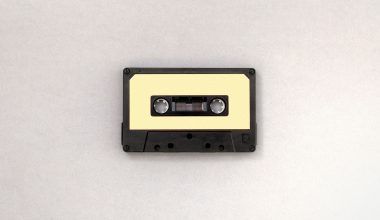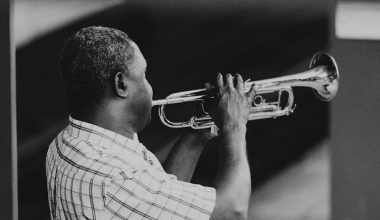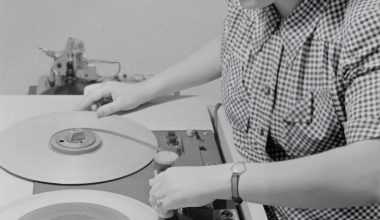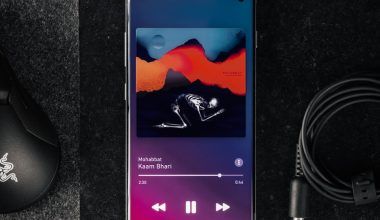Why Knowing Music Equipment Matters
Hey there, music lover! If you’re starting your musical journey or even if you’re a pro looking to upgrade your setup, knowing your music equipment names is super important. (music equipment names)Imagine trying to make music without the right tools—it’s like baking without a recipe! Whether you’re recording at home, jamming with your band, or performing on stage, having the right gear can make all the difference. Let’s dive in and explore all the cool equipment you need to create magic with music!
1. Microphones: Catch Your Voice and Sound
Microphones, or simply mics, are like ears for your music—they capture sounds so you can record them or amplify them. Here are the main types:
- Dynamic Microphones: These are strong and work well on stage. They don’t pick up background noise, so they’re perfect for loud environments like concerts.
- Condenser Microphones: These are used in studios because they pick up even the tiniest sound details. Great for vocals and acoustic instruments.
- Ribbon Microphones: These are a bit fancy and give a warm, old-school vibe. They’re mostly used for jazz and classical music.
Examples: Shure SM58 (great for live shows) and Rode NT1 (amazing for studio vocals).
Why they matter: Without a good microphone, your voice or instrument may not sound as awesome as it truly is.
2. Amplifiers: Make It Loud and Clear
If microphones are the ears, amplifiers (or amps) are the mouths—they make sure your music is heard. Amps are especially important if you play electric guitars or bass.
- Guitar Amplifiers: These make your guitar sound louder and add effects like distortion or reverb.
- Bass Amplifiers: These are specially designed to handle low, thumpy bass sounds.
- Keyboard Amplifiers: If you play the keyboard, these amps ensure every note is crystal clear.
Examples: Fender Mustang (guitar amp) and Ampeg BA-115 (bass amp).
Why they matter: A good amp can turn a small sound into a big, booming one that fills a room.
3. Instruments: The Heart of Music
This one’s obvious, right? Instruments are the soul of music. Here are the main types:
- String Instruments: Guitars, violins, bass guitars, and ukuleles are popular. They’re great for most genres, from rock to classical.
- Percussion Instruments: Drums, tambourines, and cymbals are what you need to keep the beat.
- Keyboards and Synthesizers: Perfect for pop, electronic, or classical music.
Examples: Yamaha P-45 (keyboard) and Fender Stratocaster (guitar).
Why they matter: You can’t make music without an instrument, can you? They’re like your creative best friend!
4. Recording Devices: Save Your Songs
Want to make a song and share it with the world? You’ll need recording devices. These tools help you capture your music so it sounds just as amazing when others listen to it.
- Audio Interfaces: These connect your instruments and mics to your computer. Think of them as bridges between the real and digital world.
- Portable Recorders: Handy for capturing ideas on the go.
- DAWs (Digital Audio Workstations): Software like GarageBand or FL Studio where you mix and edit your tracks.
Examples: Focusrite Scarlett 2i2 (audio interface) and Zoom H4n (portable recorder).
Why they matter: Without recording devices, your songs would stay stuck in your head forever!
5. Mixers: Balance Everything Perfectly
Imagine making a soup and not mixing the ingredients—you’d get lumps, right? That’s what mixers do for music. They combine and balance all the sounds.
- Analog Mixers: Simple to use and great for small setups.
- Digital Mixers: Advanced and packed with cool features like presets and effects.
- Powered Mixers: These come with built-in amplifiers.
Examples: Behringer Xenyx 502 (analog) and Yamaha TF1 (digital).
Why they matter: Mixers make sure every sound in your song works together harmoniously.
6. Studio Monitors: Hear the Real Sound
Regular speakers often enhance sound, but studio monitors let you hear your music exactly as it is. This helps you find flaws and fix them before releasing your tracks.
- Nearfield Monitors: Best for small studios.
- Midfield Monitors: Great for larger spaces.
- Subwoofers: Add deep bass to your sound.
Examples: KRK Rokit 5 (nearfield) and JBL 305P (midfield).
Why they matter: Accurate listening is key to making professional music.
7. Accessories: The Little Things That Matter
Accessories might seem small, but they’re crucial for smooth music-making. Here’s what you’ll need:
- Cables: Connect everything, from mics to mixers.
- Pop Filters: Stop harsh sounds when you say “P” or “B” while singing.
- Headphones: For private listening and mixing.
Examples: Mogami cables, Audio-Technica ATH-M50x (headphones).
Why they matter: Small tools can solve big problems and make your life easier.
8. DJ Gear: For the Beat Makers
If you love creating mixes, DJ gear is your playground.
- Turntables: For spinning vinyl records.
- DJ Controllers: Let you mix, loop, and add effects.
- Headphones: To monitor your beats.
Examples: Pioneer DJ DDJ-400 (controller) and Technics SL-1200 (turntable).
Why they matter: DJs can transform a quiet room into a rocking party! (music equipment names)
9. Advanced Equipment for Pros
If you’re running a professional studio, you’ll need some advanced gear:
- Outboard Gear: Compressors, equalizers, and reverb units for high-end sound.
- Patch Bays: Help you organize all your audio connections.
- Mastering Tools: Make your tracks polished and ready for release.
Examples: Universal Audio LA-2A (compressor) and Neve 1073 (preamp).
Why they matter: These tools are the secret to creating chart-topping hits.
10. Budget Gear for Starters
You don’t need to spend a fortune to make great music. Here are some budget-friendly options:
- Microphones: Samson Q2U and Audio-Technica AT2020.
- Audio Interfaces: Focusrite Scarlett Solo.
- Portable Keyboards: Alesis Harmony 32.
Why they matter: Affordable gear helps you start your music journey without breaking the bank.
Tips to Build Your Perfect Music Setup
- Start Small: Don’t buy everything at once. Start with essentials like a mic and headphones.
- Set a Budget: Decide how much you want to spend and stick to it.
- Research: Check reviews and ask fellow musicians for recommendations.
- Upgrade Slowly: As you grow, invest in better equipment.
Conclusion: Start Your Musical Journey
And there you have it—a complete guide to music equipment names! From microphones to mixers, we’ve covered everything you need to know. Remember, it’s not about having the most expensive gear; it’s about making the best music with what you have. So, get started, experiment, and most importantly, have fun!
Related Articles:
For further reading, explore these related articles:
- What Are Polar Patterns? A Simple Guide for Everyone
- Promo Cards on Spotify: A Game Changer for Artists
- How to Copy Song Lyrics Without Breaking Any Rules
For additional resources on music marketing and distribution, visit Deliver My Tune.






